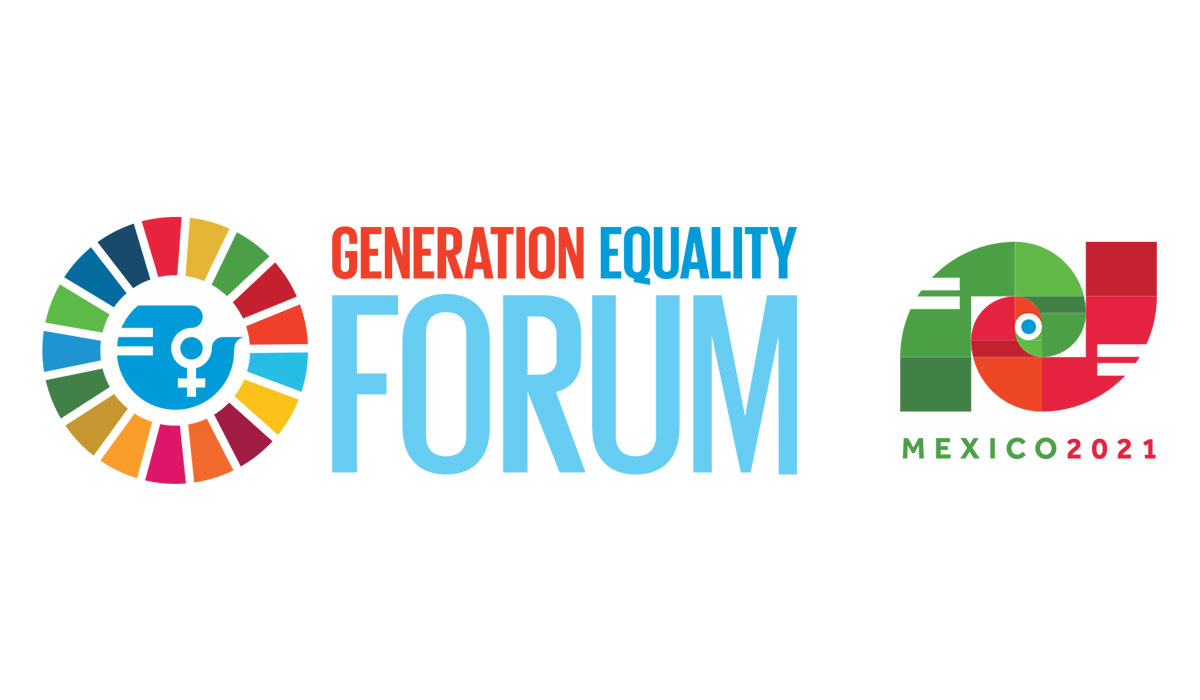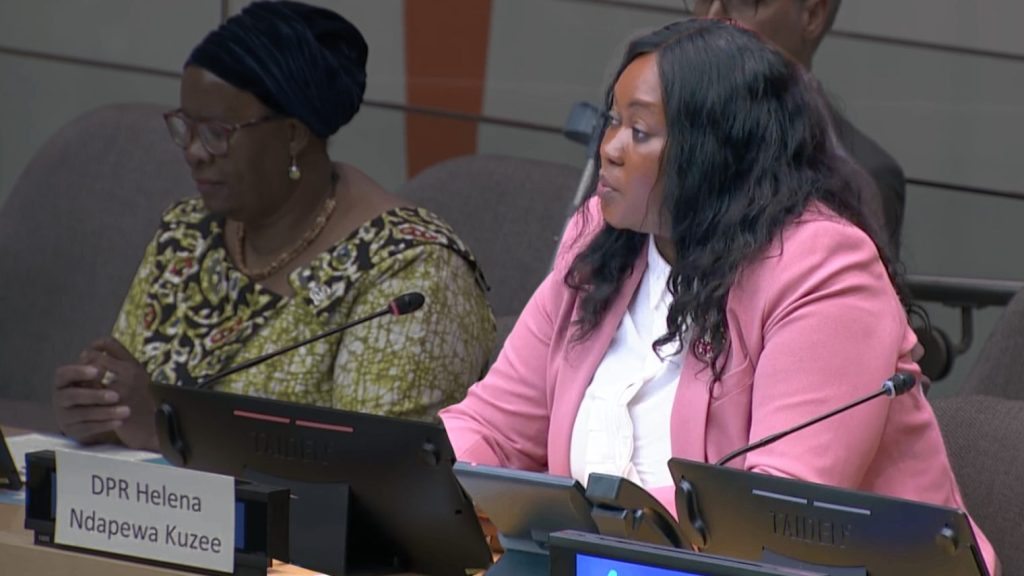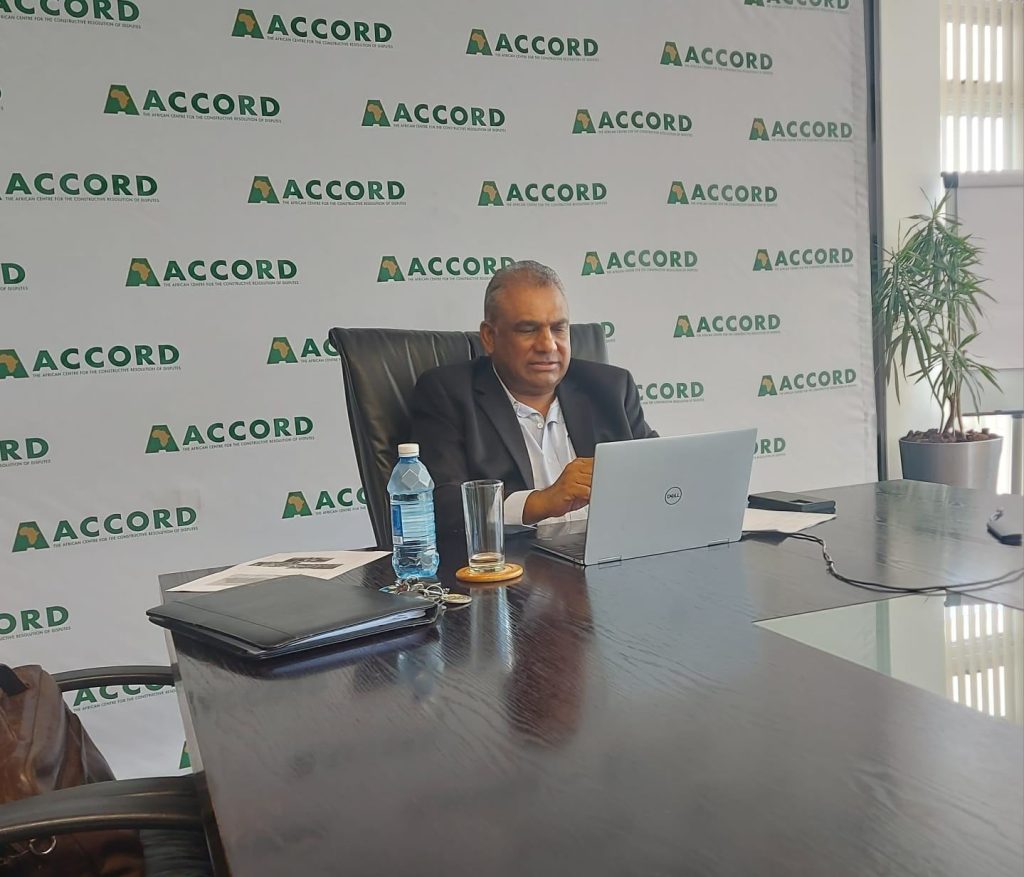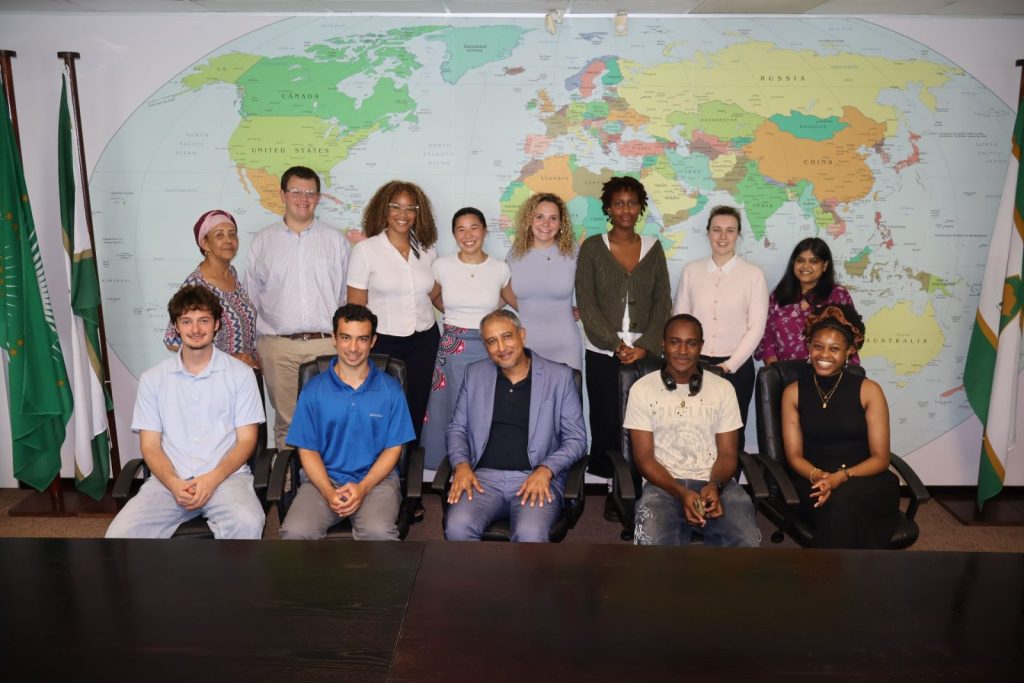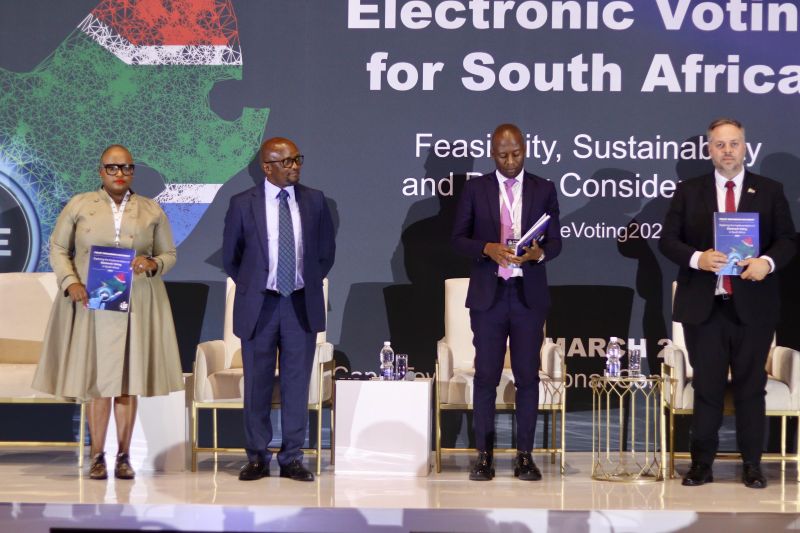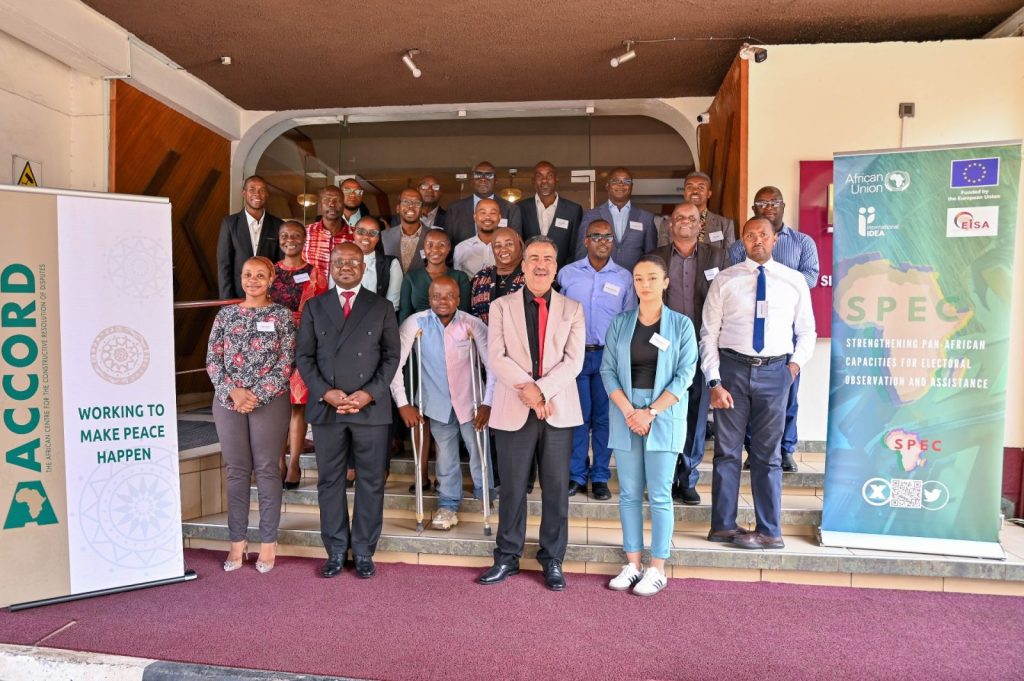As a board member of the Generation Equality Compact on Women, Peace and Security and Humanitarian Action (WPS-HA), ACCORD was invited to attend the Generation Equality Forum Mexico City From 29 to 31 March 2021. Hosted virtually, the three-day event brought together an estimated 10,000 people, including over 250 speakers from 85 countries to reinvigorate action and movements for gender equality.
The goal of the Generation Equality Forum Mexico City is to generate urgent action and accountability on gender equality, spotlighting the power of women’s rights activism, feminist solidarity and the leadership of the youth to achieve transformative change. The event takes place a quarter century after the historic Fourth World Conference on Women and the adoption of the Beijing Declaration and Platform for Action, the most comprehensive framework for achieving women’s empowerment and gender equality. The Forum in Mexico City will review progress since then and shape a programme of concrete measures to advance gender equality between now and 2030. The Forum will culminate in Paris (France) from 30 June – 2 July 2021.
Represented by Ms Pravina Makan-Lakha, ACCORD’s Advisor on Women, Peace and Security (WPS) and Ms Molly Hamilton, ACCORD’s WPS Programme Officer, ACCORD attended the several WPS-HA Compact-related events.
On 29 March, ACCORD attended the session, titled, “Crisis in the achievement of gender equality in peace and security and humanitarian sector.” Moderated by Susanne Mikhail, Regional Director, Arab States, UN Women, the speakers included; Angela Kane, Senior Fellow, Vienna Centre for Disarmament and Non-Proliferation; Bineta Diop, Special Envoy on Women, Peace and Security to the African Union and Founder of Femmes Africa Solidarité; Daniela Soto Pito, Coordinator, Programa Mujer Consejo Regional Indígena del Cauca; Kateryna Levchenko, Governmental Commissioner for Gender Policy, Government of Ukraine; Jaqueline O’Neill, Ambassador for Women, Peace, and Security, Government of Canada; María Fernanda Espinosa, Former Minister of Foreign Affairs and of Defense of Ecuador, former President of the UN General Assembly; May Maloney, Deputy Head, Addressing Sexual Violence, International Committee of the Red Cross (ICRC); Paivi Kannisto, Chief, Women, Peace, & Security, UN Women; Radhika Coomaraswamy, Former Under-Secretary-General, Special Representative for Children and Armed Conflict; Sandie Hanna, Founder of Feminist Diairies & Programs Officer, Palestinian Working Woman Society for Development (PWWSD); Siga Fatima Jagne, Commissioner for Social Affairs and Gender, Economic Community of West African States (ECOWAS); and Sonja Hyland, Ambassador, Political Director, Department of Foreign Affairs and Trade, Government of Ireland.
The session focused on the gains and shortfalls of the WPS and HA agendas over the past 20 years, and identified the best practices for going forward. For example, MsvRadhika Coomaraswamy shared that there have indeed been gains, especially related to the recognition of the WPS agenda and the number of international frameworks that have been created. However, some of the shortfalls identified include the lack of adequate funding, the need to domesticate the agenda at the local level, as well as the need to get more women in decision-making positions.
On day two of the Forum, 30 March, ACCORD participated in the thematic session on the WPS-HA Compact, titled, “Compact on Women, Peace and Security and Humanitarian Action.” The Dialogue format for this session was a moderated panel of WPS-HA Leaders who presented an overview of the draft Blueprints, covering the Vision Statement, Actions, implementation tactics, and success measures. Leaders called for bold and transformative commitments to the Blueprints and share their common ambition. Panellists represented the Compact in its full diversity and include youth, civil society, private sector, philanthropy, and governments and international organizations.
The session was moderated by Isobel Yeung, Journalist at VICE and began with opening remarks from Jennelly Matundu, Deputy Minister of International Relations and Cooperation, on behalf of Netumbo Nandi-Ndaitwah, Deputy Prime Minister, Republic of Namibia; Nujeen Mustafa, Disability Rights and Refugee Youth Activist; and Paivi Kannisto, Chief, Women, Peace, & Security, UN Women. Other speakers included; Peter Batchelor, Head of the Conflict and Fragility Policy and Engagement Team at the Crisis Bureau of the United Nations Development Programme; Rania Dagash-Kamara, Chief for Policy and Best Practices, United Nations Department of Peace Operations; Stephanie Johanssen, Women’s Refugee Commission; Teresa Whitfield, Director of the Policy and Mediation Division of the United Nations Department of Political and Peacebuilding Affairs; and Ambassador Victoria Sulimani, Deputy Permanent Representative of the Permanent Mission of Sierra Leone to the United Nations.
In the evening of Tuesday, 30 Mach 2021, Molly Hamilton, WPS programme officer, participated in the WPS-HA Compact networking panel discussion on intergenerational leadership in the compact. She presented alongside fellow panellists; Kyra Luchtenberg, UN Women Policy Analyst; Heela Yoon, founder of Afghan Youth Ambassadors for Peace Organization; Malika Iyer, Asia Programs Coordinator and Humanitarian Action Coordinator at the Global Network for Women Peacebuilders; and Rezwan Rahman, representing Our Generation for Inclusive Peace.
The session reflected on how to integrate intergenerational leadership in the Compact and also how to push for intergenerational leadership to ensure the achievement of the goals of the various thematic working groups. Each panellist reflected on the various thematic groups and then the session was opened up to the audience for their contributions, ideas on intergenerational leadership. An outcome of the session was a document which identified a handful of principles for intergenerational leadership.
The three-day event concluded with renewed commitments to gender equality, including:
- Mexico’s National Institute for Women (INMUJERES) in partnership with UN Women launched an initiative for an Alliance for Care Work, in order to address the care burden that impedes women’s economic opportunity, and which has risen due to the pandemic;
- Women Moving Millions – a global network of individual philanthropists – made a commitment to raise USD 100 Million to support the entirety of the Action Coalition agenda;
- A partnership between Ford Foundation, the Equality Fund and the Government of Canada announced a commitment of funding in achieving gender equality including: a USD 15 Million commitment from Ford Foundation to the Equality Fund; plans to initiate a multi-stakeholder Global Alliance for Sustainable Feminist Movements; and a USD 10 Million commitment from Canada to the UN Trust Fund to End Violence Against Women; and
- The Government of Mexico launched the Group of Friends of Gender Equality, integrated by 20 Member States who committed to coordinate efforts and promote actions on different multilateral fora in favor of gender equality.

